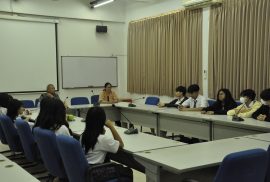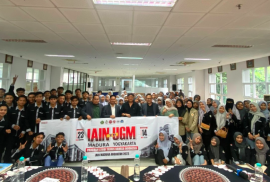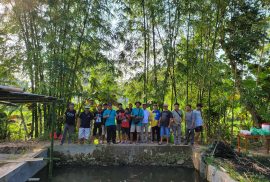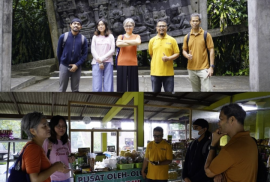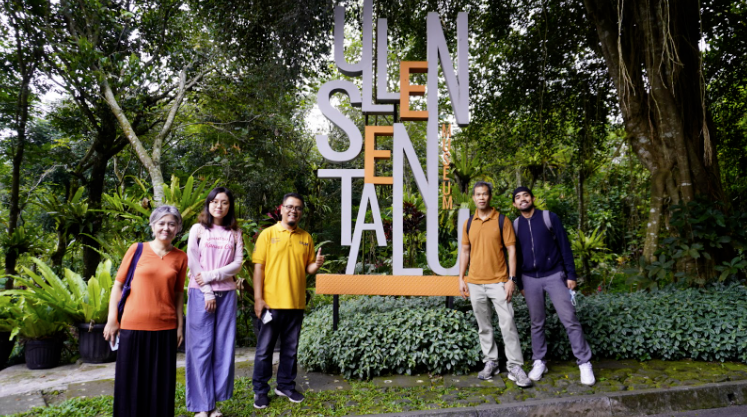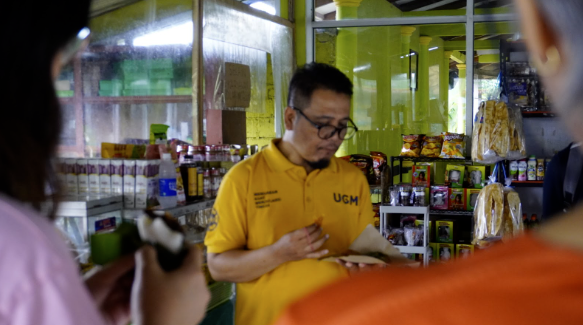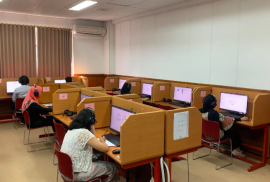Yogyakarta, May 22, 2025 — The Japanese Language and Culture Study Program (BKJ) of the Faculty of Cultural Sciences, Universitas Gadjah Mada (FIB UGM) welcomed a visit from SMP Montessori on Thursday (22/5), held in Meeting Room 1 of the Poerbatjaraka Building, FIB UGM.
This visit was part of an early introduction to higher education for junior high school students, particularly focusing on Japanese language and culture. The delegation was warmly welcomed by the Head of the BKJ Study Program, Mr. Tatang Sumarsono, M.Hum., who expressed appreciation for the students’ interest in exploring cultural studies more deeply.
In her remarks, Ms. Rengganis Istikasari, representing SMP Montessori, explained that the visit marked the school’s initial effort to introduce students to the humanities faculty, after previously focusing more on visits to faculties in the exact sciences. “We want our students to understand what university life is like, both in terms of environment and academic substance,” she stated.
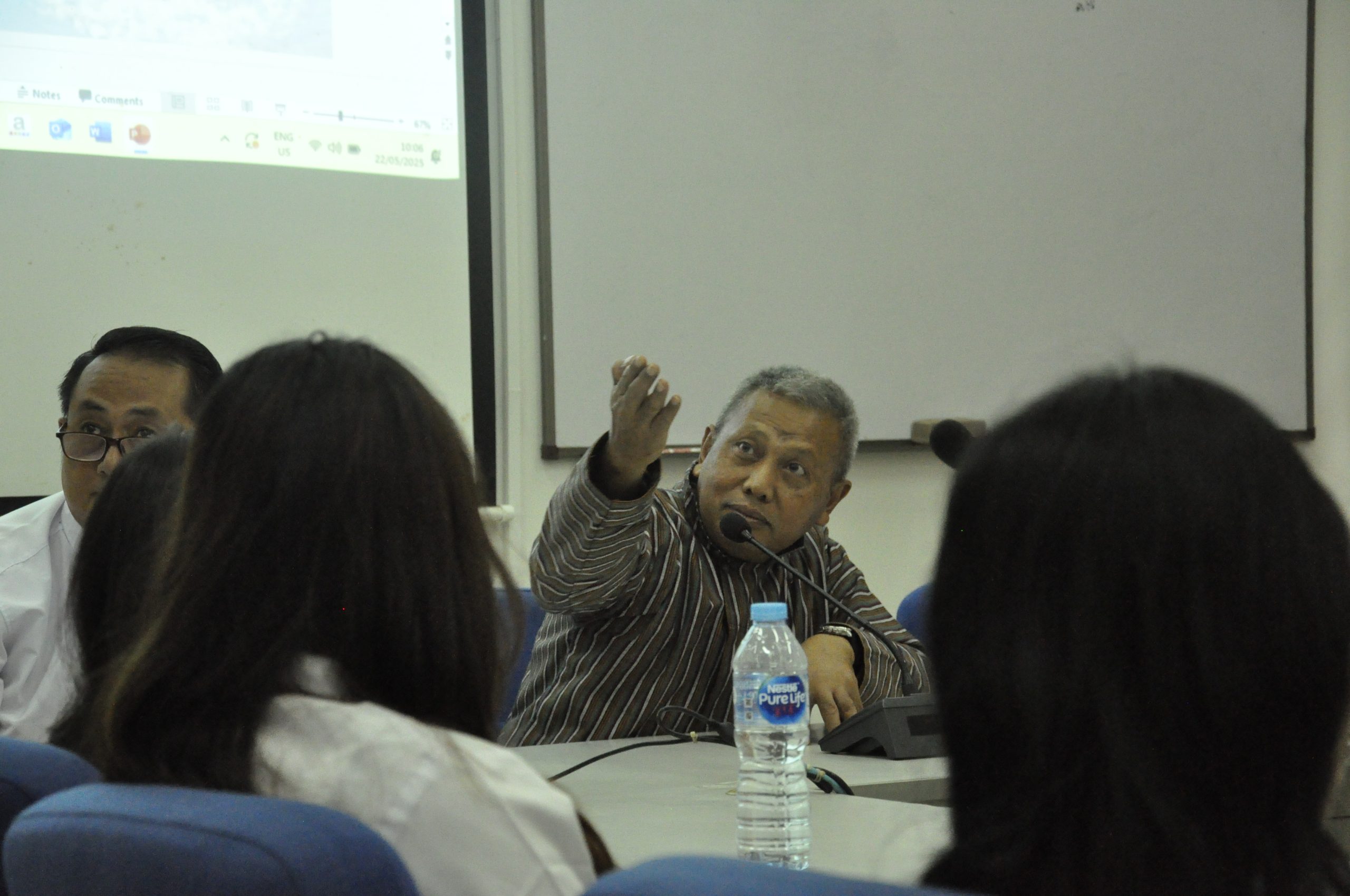
The event continued with a presentation on the vision and mission of the BKJ Study Program by Mr. Roby Winarso, M.Hum., followed by thematic lectures delivered by BKJ lecturers:
-
Ms. Tuti Widiastuti, M.Hum. presented a session on Moral Education (Doutoku) in Japan, which is part of the compulsory curriculum at the elementary and junior high school levels. The session emphasized the development of students’ character through values such as sincerity, responsibility, simplicity, and self-control.
-
Mr. Najih Fawaid, M.Hum. discussed the importance of aisatsu (greeting expressions) in Japanese society, which reflect politeness and social order. Expressions such as ohayou gozaimasu, konnichiwa, and yoroshiku onegaishimasu were highlighted as vital components of Japanese communication etiquette.
-
Mr. Moeljadi, M.Hum. introduced the concept of omotenashi, a Japanese philosophy of service that emphasizes sincerity, attention to detail, and creating the best possible experience for others without expecting anything in return.
The session concluded with a lively Q&A segment. Aya, one of the students, asked an interesting question about ramen dining etiquette, which was enthusiastically addressed by the lecturers. The activity provided students with a direct experience of Japanese culture, not only in theory but also through interactive discussion with academic professionals.
[Public Relation of Faculty of Cultural Sciences, Muhammad Ebid El Hakim]

